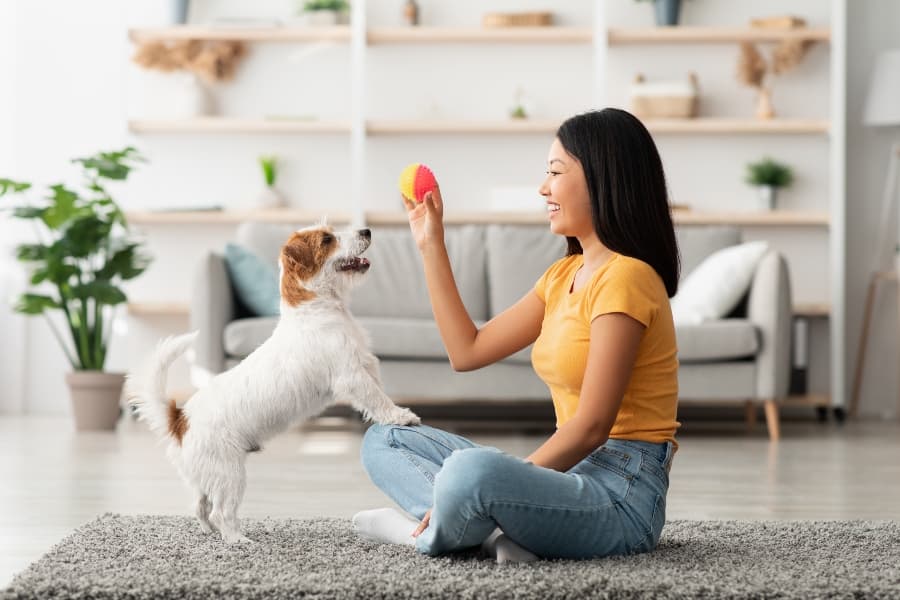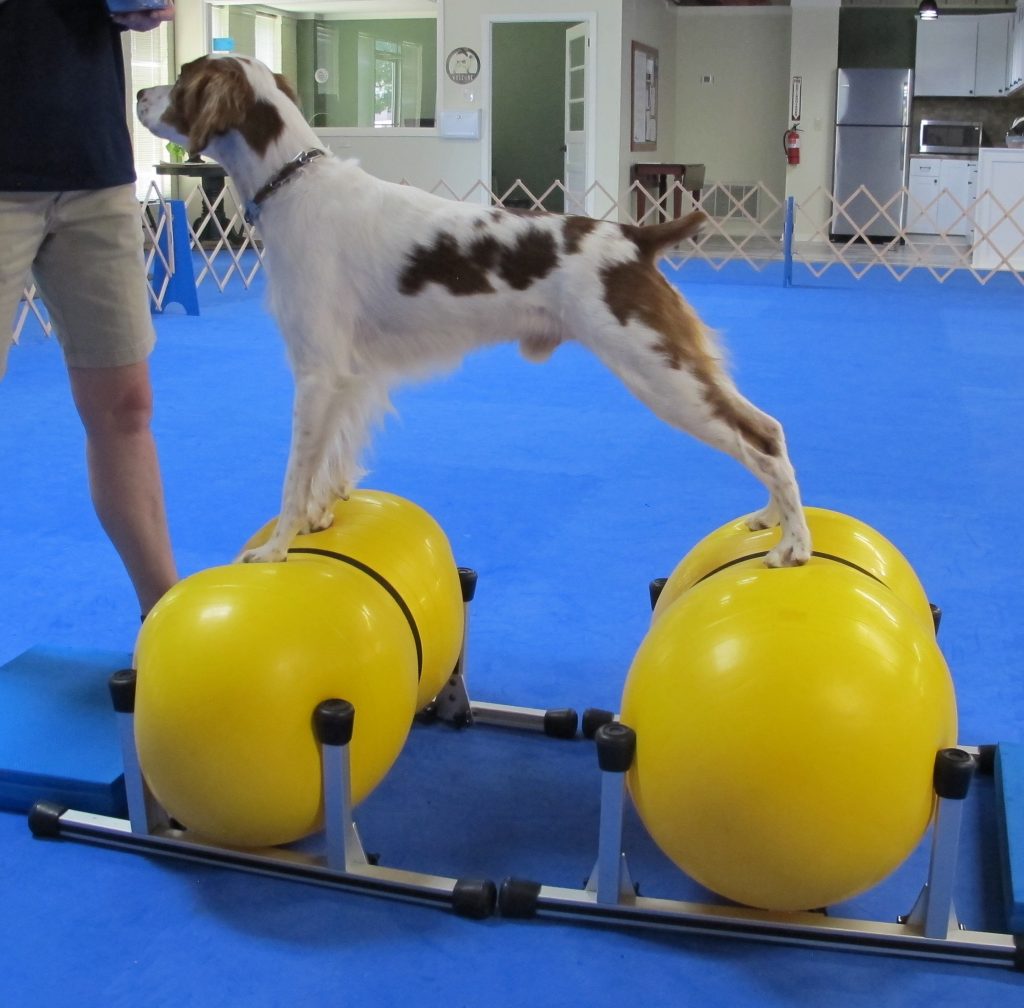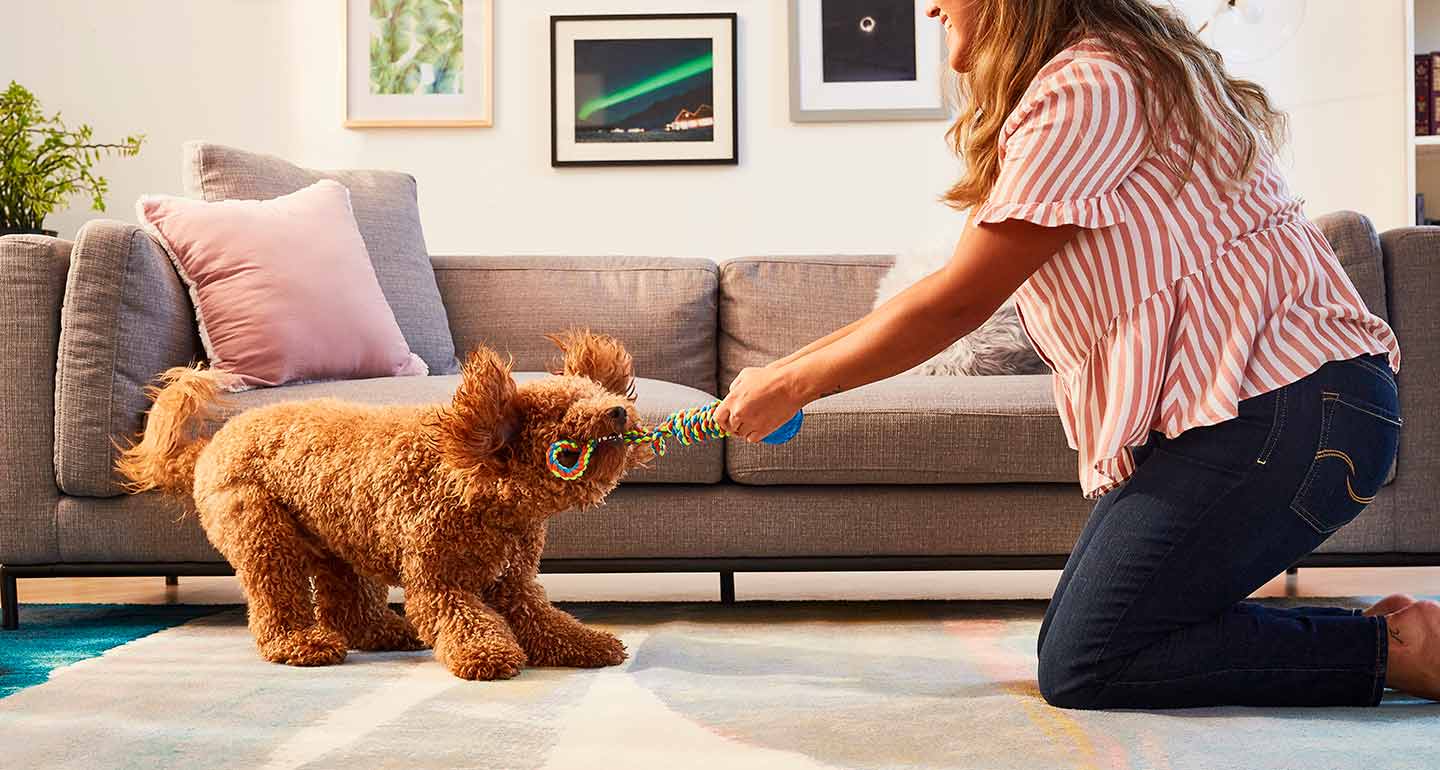When bad weather hits, tire out your dog or puppy with these three indoor exercises for dogs.
Inclement can mean less time outside, so how can we tire a dog out without walking? Or play with a puppy indoors? Being inside with your dog doesn’t have to be dull. Check out these three boredom-busting activities:
Train your dog indoors
Mental exercise can be more tiring than physical exercise! Rewards-based training helps build skills, boost confidence and improve your bond with your dog. Teach puppies or brush up on life skills like:

How to Teach The First 7 Things To Your Dog: Sit, Leave it, Come, Leash walking, Name…) – YouTube
- Sit
- Down
- Stay
- Recall
Find It is also a great skill to teach that translates to many other activities and games.
Or turn it up a notch and try some trick training.
Mix in Free Work indoors
The concept of Free Work, originated by Sarah Fisher, helps build confidence and can be especially helpful for anxious and overreactive dogs. The idea is to encourage interaction and choice with a variety of objects that vary in size, texture and level of engagement. Use a spare room, basement or even a garage and set up an interactive course with safe things you have around the house; preferably things he’s not seen before or find things at rummage sales or thrift stores. There’s no timeline and your job is to just observe: you can learn a lot about your dog by allowing him the space and time to engage at his pace. Some well-placed treats or kibble can get the party started.

Freework & Groundwork Games! – YouTube
Tap into Nose/Scent Work indoors
While hounds are generally nosier than Shih Tzus, all dogs experience much of the world through their noses. Combining brain power with nose power is a win-win for enrichment.
- Start with 4-5 small-ish boxes, flaps open, a yummy treat inside each, your dog out of sight.
- Place boxes in a well-spaced row on the floor in room with minimal/no distractions.
- Be patient and allow him time to show interest in the boxes and get the treats. Mark/click when he does.
- Start with shallow boxes if your dog shows signs of apprehension with deeper ones.
Gradually work up to closing flaps, closing the whole box, increasing the space between boxes, hiding boxes, placing boxes on elevated surfaces. This could take several sessions

No boxes? No problem. Here’s our sister publication’s tips to teach nose work in the house.
Regardless of weather, engaging your dog indoors can be an easy way to add spice to any day. Of course, you can always just play and be silly and go with the flow; spending quality time is always a good time. Life is short — play with your dog!
